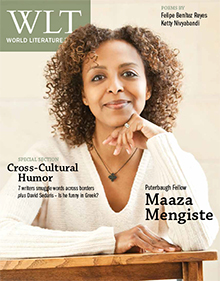silent conversations: a reader’s life by Anthony Rudolf
London. Seagull Books (University of Chicago Press, distr.). 2013. ISBN 9780857420800
 Silent conversations (the lowercase is indicative of Anthony Rudolf’s aura of mystery) is an account, albeit fragmentary and digressive, of the author’s seventy-year association with the printed word. Rudolf is (was) variously a psychiatrist, essayist, translator, poet, autobiographer, literary critic, editor, and occasional BBC broadcaster. His autobiography, The Arithmetic of Memory, is complemented by this rambling account of his lifetime of reading.
Silent conversations (the lowercase is indicative of Anthony Rudolf’s aura of mystery) is an account, albeit fragmentary and digressive, of the author’s seventy-year association with the printed word. Rudolf is (was) variously a psychiatrist, essayist, translator, poet, autobiographer, literary critic, editor, and occasional BBC broadcaster. His autobiography, The Arithmetic of Memory, is complemented by this rambling account of his lifetime of reading.
Though there is no index, there are 138 pages of bibliography. A seventeen-page table of contents dividing the book into sections indicates where various authors and subjects are discussed, from Jean-Paul Sartre and André Malraux to Albert Camus, Mark Twain, Ezra Pound, T. S. Eliot, Gertrude Stein, Ernest Hemingway (“I have not underlined a single word in my much-thumbed copy [of A Moveable Feast], as if to say the prose works on me like a poem”), F. Scott Fitzgerald, Norman Mailer, et al.
Rudolf’s interests and opinions range widely. In his section “Fiction I Don’t Read,” he includes crime fiction and historical fiction. On politics: “I tremble for my grandchildren faced with the rotten, polluted, and unfair world we are passing on to them, and as a consequence one of my dominant modes is anger, of which there is plenty in The Penguin Book of Socialist Verse.” He later admits that his “neglect of history and economics is . . . serious.”
On sport, Rudolf extols cricket, quoting the Dictionary of Extraordinary Cricketers: “If the French noblesse had been capable of playing cricket with their peasants their chateaux would never have been burnt.”
Inevitably, clichés creep into his dialogue: his simplistic view of nuclear science (“the nuclear winter”) borders on the hysteric: “people are waking up to the dangers although the pessimist in me thinks it may already be too late.” George Bush, he opines, “fiddled while Rome burned,” and “all that is necessary for the triumph of extinction is for good men to remain in denial.”
Anthony Rudolf is an intense reader and writer: his opinions are dogmatically personal and revealing and reflect the extensiveness of his library. His lifetime infatuation with the printed page provides a sometimes-delightful excursion and a sometimes-frustrating read.
Daniel P. King
Whitefish Bay, Wisconsin



























